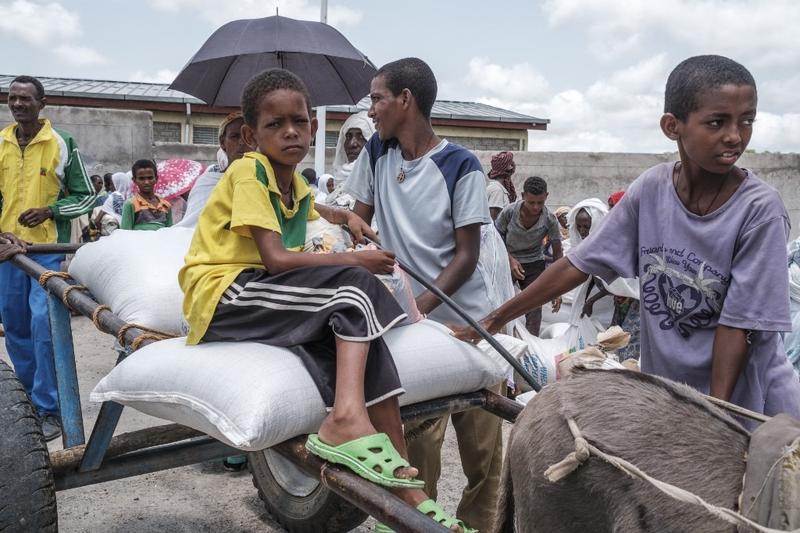 Children wait next to sacks of wheat during a food distribution organized by the Amhara government near the village of Baker, 50 km southeast of Humera, in the Tigray Region of Ethiopia, on July 11, 2021. (EDUARDO SOTERAS / AFP)
Children wait next to sacks of wheat during a food distribution organized by the Amhara government near the village of Baker, 50 km southeast of Humera, in the Tigray Region of Ethiopia, on July 11, 2021. (EDUARDO SOTERAS / AFP)
UNITED NATIONS - The UN Children's Fund (UNICEF) chief on Monday said she was extremely alarmed by the reported killing of over 200 displaced people, including more than 100 children, in Ethiopia's Afar region.
The intensification of fighting in Afar and other areas neighboring Tigray is disastrous for children.
Henrietta Fore, UNICEF executive director
"The intensification of fighting in Afar and other areas neighboring Tigray is disastrous for children," said Henrietta Fore, UNICEF executive director. "It follows months of armed conflict across Tigray that have placed some 400,000 people, including at least 160,000 children, in famine-like conditions."
ALSO READ: Ethiopia conflict: Amhara region vows to attack Tigray forces
The attack on displaced families sheltering at a health facility and a school occurred on Thursday.
Recent fighting displaced more than 100,000 people, adding to the 2 million people already uprooted from their homes, she said in a statement. "UNICEF estimates a 10-fold increase in the number of children who will suffer from life-threatening malnutrition in Tigray over the next 12 months."
The World Food Programme (WFP) reached half of the people it planned to assist, including communities on the verge of famine in northern Ethiopia. It faces severe shortages of food, cash, fuel and functioning telecommunications equipment.
READ MORE: UN warns of worsening famine, clashes in Ethiopia's Tigray
Last week, more than 175 aid trucks arrived in the Tigray region via the Abala corridor and 90 more are expected in the coming days, WFP said. About 90 percent of Tigray's population, some 5.2 million people, require humanitarian food assistance. The UN agency and its partners require at least 100 trucks daily to meet their needs.


